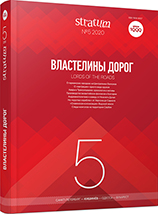Мария Комша, или Как отношения между двумя «братскими странами» повлияли на карьеру археолога
Maria Comșa or How the Relationship between Two “Friendly Countries” Influenced the Career of an Archaeologist
Author(s): Iurie StamatiSubject(s): History, Archaeology
Published by: Издательский дом Stratum, Университет «Высшая антропологическая школа»
Keywords: Romania; USSR; Moldova; history of archeology; Slavic archeology; Romanian archeology; “scientific field”;
Summary/Abstract: The Romanian archaeologist Maria Comșa (1928—2002) is known for her studies of the Early Middle Ages in the Carpathian-Danubian-Pontic area. The social organization of the local communities, the Romanization, the penetration of the Slavic tribes, the extension of the Bulgarian Empire to the north of the Lower Danube, are the main topics she addressed in her works. This article presents the most important moments in the researcher’s biography, as well as the political and ideological context in which she worked. Also, the article aims to identify the causes that led, starting with the second half of the 1960s, to her marginalization and to the appearance, in the Romanian historiographical tradition, of a predominantly negative image about her. The main causes would be: some of her views on the region’s early Middle Ages that no longer corresponded to the political and ideological context of the 1960—1970s; related to this new context, the fact that she did her Ph. D. in the USSR; the nature of her relationship with Professor Ion Nestor (1905—1974), one of the most influential Romanian archaeologists between the 1940s and the 1970s. The latter cause is analyzed through the prism of “scientific field” concept proposed by the French sociologist Pierre Bourdieu. The image of Maria Comșa as a simple tool of transmission and implementation in Romanian archaeology of some “foreign ideas” is deconstructed.
Journal: Stratum plus. Археология и культурная антропология
- Issue Year: 2020
- Issue No: 5
- Page Range: 15-28
- Page Count: 14
- Language: Russian

